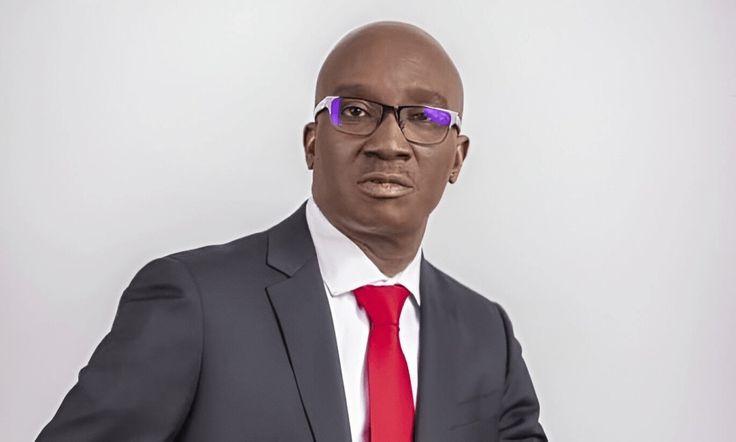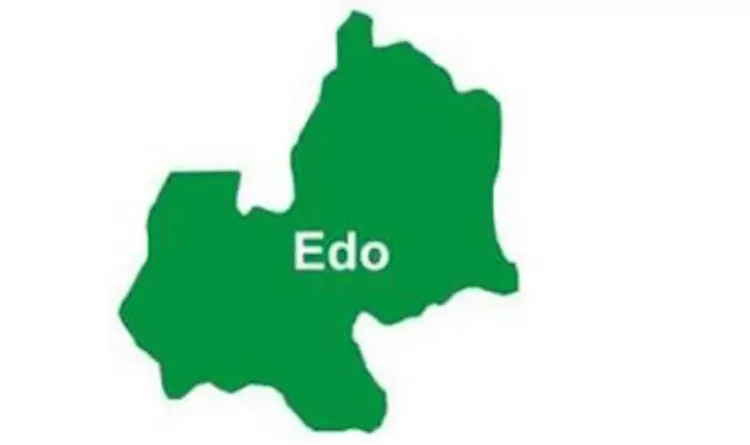Adams Oshiomhole: The N222 Million Question in Edo State
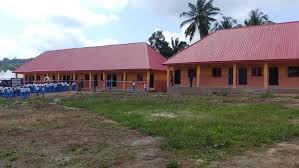
As a fulfillment of the promises made when he was campaigning in 2023 campaign as a member representing Edo North Senatorial District, Senator Adams Oshiomhole, former Edo State governor and current senator representing Edo North, cut the ribbon to commission new classroom blocks at Ojah Comprehensive High School in Akoko-Edo Local Government Area on Tuesday 22nd, October, 2025 and it was hailed as another “milestone in grassroots development.”

But beneath the ceremonial smiles and photo ops lies a troubling question, how does a project worth ₦222 million end with pupils sitting on bare floors? This is the core of a new report by civic watchdog Monitoring Initiative for Transparency in Governance (MonITNG), which has thrown fresh light on the widening gap between political showmanship and true service delivery in Nigeria. MonITNG engages in various projects and programs that use data, citizen participation, and technology to oversee government actions and improve accountability. These initiatives often involve citizen monitors tracking contracts using data analysis to assess risks, and creating public platforms for information sharing and oversight.
The Project: A Breakdown That Raises Eyebrows
According to MonITNG’s findings, the project (Code ZIP20240448) was executed under the supervision of Federal Polytechnic Auchi, under the Federal Ministry of Education, and awarded to a contractor identified as Sam Sedi Nig. Ltd. The project, estimated at ₦222 million was meant to provide modern, fully equipped classrooms for students in Akoko-Edo, one of Edo State’s rural areas long plagued by infrastructural decay.
However, when MonITNG’s team visited the site, what they found told a different story. “The buildings exist, but the work is of poor quality, no landscaping, no drainage, poor finishing, and, most shockingly, no furniture,” the report stated. “What is the essence of commissioning a project that leaves children on bare floors? This is not development; it is deception.”

The Contractor Question
Further investigation by MonITNG revealed a pattern of questionable performance tied to the same contractor. Sam Sedi Nig. Ltd was reportedly behind other controversial projects in Edo North, including: The abandoned Warake–Ivbiaro Road in Owan East Local Government Area, valued at ₦200 million. A controversial agricultural empowerment programme in Etsako communities, also linked to Senator Oshiomhole’s constituency interventions. The watchdog’s report described this as “a recurring pattern of inflated contracts, poor execution, and little accountability.”
Constituency Projects or Political Tools?
Constituency projects are meant to bridge the gap between federal allocations and local needs, a chance for lawmakers to directly impact their constituencies, but in reality, these projects often serve as political trophies, more about optics than impact. MonITNG argues that Oshiomhole’s project exemplifies this trend. “We cannot normalise this. Public funds are meant to transform lives, not to deliver empty buildings for photo opportunities,” the organisation said.
Just days earlier, the group had also criticised what it called the politicisation of constituency funds in Edo North, alleging that Oshiomhole and Minister for Regional Development, Abubakar Momoh, had turned public projects into “party empowerment schemes.” According to the statement, a “grassroots empowerment programme” recently launched by the duo distributed ₦100,000 cash gifts and items to party loyalists, while essential infrastructure like schools remained neglected.
“What happens to the thousands of ordinary citizens who are not party members but desperately need public infrastructure and social services?” MonITNG asked.
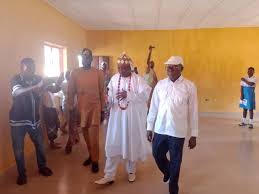
The Bigger Issue: Development or Deception?
What this controversy reveals goes beyond one school in Akoko-Edo. It exposes a recurring culture of tokenism in Nigeria’s development narrative, where public officials equate visibility with value. Commissioning ceremonies often become more important than the sustainability or quality of the projects themselves. The lack of chairs and desks in Ojah Comprehensive High School’s newly built classrooms is not merely an oversight, it symbolizes a broader failure of governance accountability.
Education infrastructure is not just about walls and roofs. It is about creating an environment that enables learning. A ₦222 million structure without furniture defeats the purpose it was meant to serve.
Public Reaction: A Mix of Outrage and Fatigue, across social media and local communities, Nigerians have expressed frustration over what many call “theatrics of development. “We’ve seen this movie too many times,” one commentator wrote on X (formerly Twitter). “They commission empty buildings, call it progress, and move on. Meanwhile, children sit on the floor.” For residents of Akoko-Edo, this incident feels like déjà vu. Many recall similar situations where roads, water projects, or boreholes were commissioned amid fanfare but fell into disrepair within months.
The question now is: Will this be different?
MonITNG has called on Nigeria’s major anti-corruption agencies, the Economic and Financial Crimes Commission (EFCC) and the Independent Corrupt Practices and Other Related Offences Commission (ICPC) to investigate the Ojah School project saying that “If ₦222 million was truly released, then pupils of Ojah Comprehensive High School deserve to learn in dignity with proper classrooms, desks, and chairs,” the group declared.
“Empty classrooms without furniture are a symbol of misplaced priority.” The watchdog also urged the National Assembly and the Ministry of Education to review how constituency projects are monitored and audited to ensure that public funds lead to public benefit, not political drama.
Accountability begins with awareness, this case is not just about Senator Oshiomhole, it is about a systemic pattern of political infrastructure delivery across Nigeria. For democracy to work, citizens must ask questions, demand transparency, and hold leaders accountable, not just at elections, but every time a ribbon is cut. When schools meant to empower young minds become photo backdrops for political figures, the future is being quietly robbed one project at a time, until transparency replaces theatrics, Nigeria’s classrooms may keep getting new walls, but empty seats.
You may also like...
The 1896 Adwa War: How Ethiopia Defied Colonialism

Ethiopia with the exception of Liberia which was used as a settler place for freed slaves remains the only African Count...
Why We Need Sleep: Inside the Brain’s Night Shift

Even when you’re asleep, your brain is quietly up to something, sorting, cleaning, and working behind the scenes.
When Nollywood Meets Netflix: The Creative Tug Between Local Storytelling and Global Algorithms

Nollywood’s partnership with Netflix is rewriting the script for African cinema, offering global reach but raising quest...
Mozambique's LNG Megaproject: A Promise or Peril?
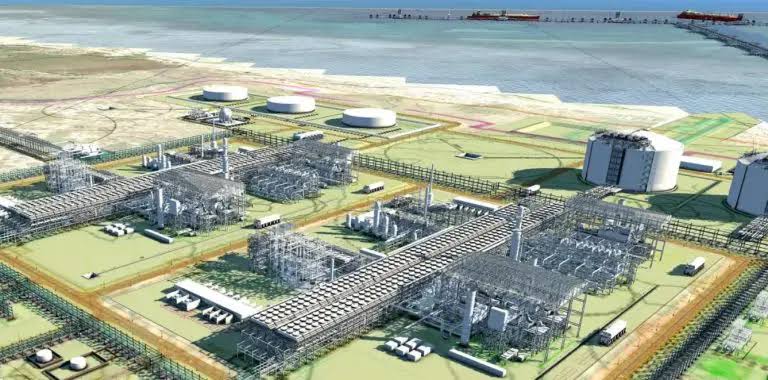
TotalEnergies is leading a consortium in Mozambique as it promises potential restructuring of the nation's energy se...
Aliko Dangote, Africa’s Wealth King: First African-Born Billionaire to Cross $30B

Aliko Dangote, the richest Black man in the world, has reached a new milestone, with a net worth of $30.3 billion, accor...
WAEC Conducts Trial Essay Test Ahead of Full Computer-Based WASSCE in 2026
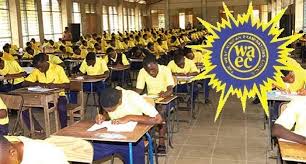
The trial Computer-Based Test (CBT) for the WAEC essay was held on Thursday, October 23, 2025. The exercise was conducte...
Can Long- Distance Love really work?

Can love really survive when touch becomes a memory and connection lives behind a screen? For many, distance isn’t the ...
Nigeria’s Rental Crisis: House of Representatives Moves to Cap Rent Hikes at 20%
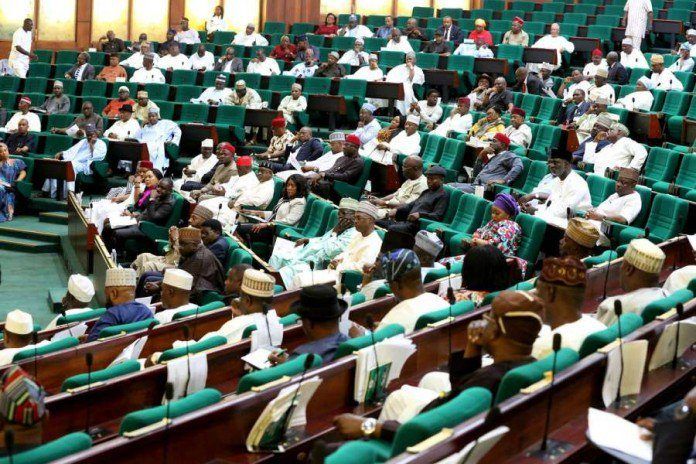
Nigeria's rental market has been under intense pressure, and now lawmakers are stepping in. The House of Rep. has called...

